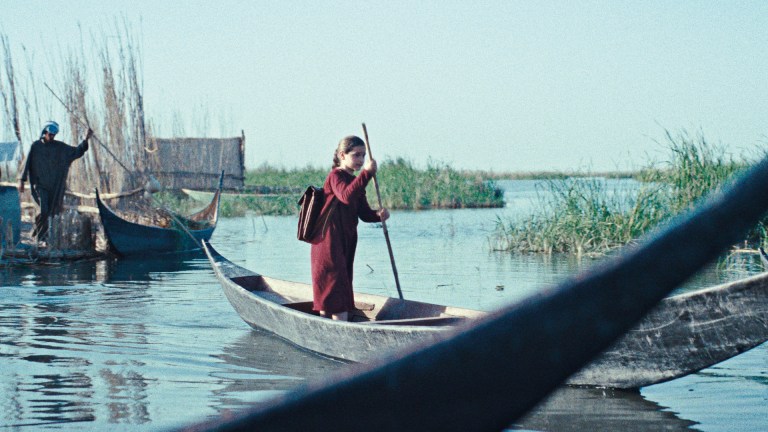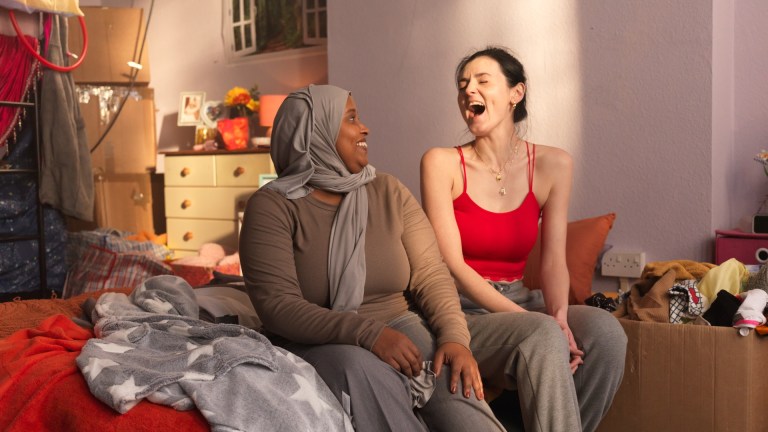“The best film about adolescence I’ve seen in a long time. Maybe ever.” That’s Molly Ringwald, star in many of John Hughes’s brilliant Eighties teen movies, tweeting about this new coming-of-age movie for the digital era. It follows a desperately shy 13-year-old through the last cringe-making week of eighth grade before high school, going deep on the impact of the internet on teenagers. How has social media rewired adolescent brains? What’s it like growing up in a world where your worth as a human being is measured by likes, shares and the thumbs-up emoji?
Which makes it sound like the cinematic equivalent of that interesting-looking longread you’ve bookmarked but will never get around to reading. Actually, Eighth Grade is funny, sad, soulful and sharp. Though I’m not sure how actual teenagers will react to it. Possibly, it’s all a bit real, performed by kids with acne and shiny foreheads – not enough filters.
The director is Bo Burnham, a 28-year-old YouTube sensation-turned-comedian who has a great ear for the way teenagers speak, making an impressive debut. Newcomer Elsie Fisher is Kayla, voted “most quiet” in her class’s end-of-year awards; she practically winces at the sound of her own voice. Another film would resort to Kayla being bullied. But instead, here the popular kids – with their big social media followings – strut around like minor celebrities, too busy staring at their iPhones to even notice Kayla wilting in the corner. There’s a brilliantly managed moment when she goes to a pool party that cool girl Kennedy (voted “best eyes”) is forced to invite her to – Kennedy’s mum has a crush on Kayla’s dad. Anyone who squirmed and fumbled through their teens will feel a pang of recognition as Kayla tiptoes out to the pool, awkwardly tugging at her swimming costume.
At night she lies in bed, scrolling endlessly through Snapchat and Instagram, watching her classmates being their best selves
There’s a real emotional generosity here. For my money what makes the film so lovely to watch is that Kayla isn’t some precocious talent reading a battered Penguin of Jean-Paul Sartre – she’s an average kid. Only 14 during filming, Fisher is terrific, acting with such intelligence and depth. Kayla’s anxiety is amplified by social media. At night she lies in bed, scrolling endlessly through Snapchat and Instagram, watching her classmates being their best selves, living their best lives (or so it looks like). In her bedroom, Kayla invents a confident, upbeat version of herself, making YouTube videos that nobody watches with titles like “Be Yourself” or “Put Yourself Out There” giving self-help to kids struggling with confidence issues, pretending that she’s breezing through. As her single father, Josh Hamilton has a gorgeous, tender dad speech at the end.
The film has a documentary realness about it that feels note-perfect. What Burnham gets is the remapping of teenagehood. Gone are the drugs, alcohol and casual sex for many. Something else is going on – depression and anxiety are on the rise. In a recent survey, 18 per cent of young people in the UK report that they do not think life is worth living. This is a film that gets under the skin of Generation X with humour and heartfelt emotion that makes it a genuinely great coming-of-age movie that hooks you by the heart.









